|
|
|

|
|
m |
 |
|
4 |
|

Email us at
info@coastal181.com |
|
|
Here’s one of our favorite
Photos of the Day from the past. |
 |
|
Writing the book
CAGES ARE FOR MONKEYS: Unleashed with Kevin
Olson, Racing Zaniest Hall of Famer
with
Kevin Olson was some kind of experience. Kevin,
who really is unleashed, prides himself on his
zaniness, but when he wants to get something
done, he sure is determined. His purpose in life
was to become a great Midget driver - and,
several years back when a group on the Internet
collaborated to list the 50 greatest Midget
drivers in the world, Kevin's was the very first
name put up. He had always been a huge Muhammad
Ali fan, so one day he hopped into his Ranchero,
drove over to Ali's estate in Louisville, and
pushed the buzzer at the gate. Amazingly, he was
able to talk his way in, and, somewhat less
amazingly, the two were great friends by the end
of the day. Progress on our book stopped for
Kevin's attendance at Ali's funeral in June of
2016. (KO Collection Photo) |
|
M |
|
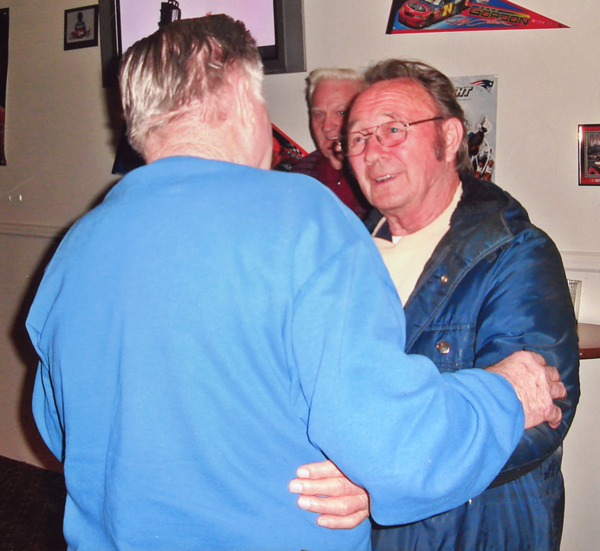 |
|
What a moment, likely the last time
Ernie Gahan and Gene Bergin met. The two buddies, both now long
since passed, were unusually popular and successful, having run a
million miles together up and down the East Coast. Every lap was
still alive in Gene’s eyes. (R.A. Silvia Collection) |
|
M |
|
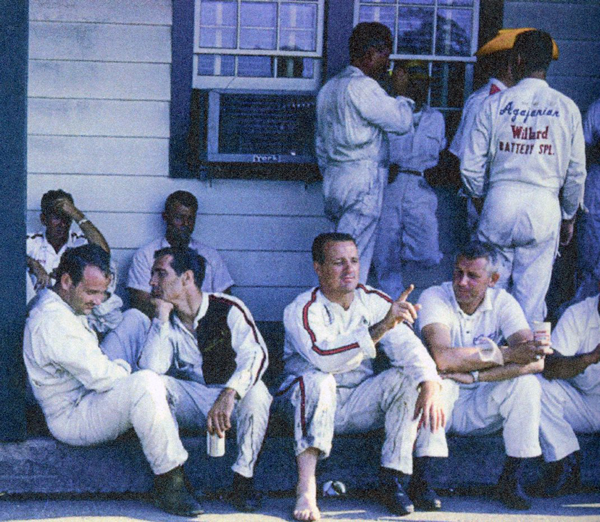 |
|
The way it was. "The Sam Nunis Fairgrounds
office was located outside turn one at Trenton Speedway. Following
the races, drivers and mechanics would gather at the Pay Window to
receive cash prize money. Show money was typically paid before the
main event. A.J. Foyt, without a shoe, is seen sitting by A.J.
Watson." Quote and photo from
THE MILLER GRILL: Memories & Meals with the King of the Speedways
and the King of the Blues, by Bart Stevens. (Bart Stevens
Collection) |
|
M |
|
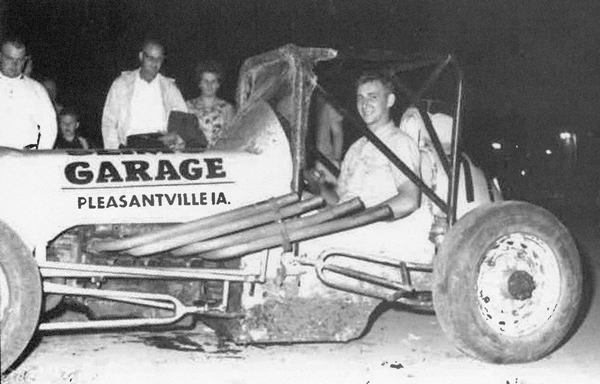 |
|
Pleasantville, Iowa’s Earl Wagner went
on a winning rampage all over the Midwest between 1961 and 1964,
wheeling both Supers and Sprint Cars. He snatched the Knoxville
Raceway title in '61 aboard this car fielded by Slim Gutknecht. He
must have had good ear plugs and elbow padding because he kept right
on going until 1975, when he became Chief Steward at Knoxville and
soon Mayor of Pleasantville. Photo from THE HISTORY OF KNOWVILLE
RACEWAY, Vol. One, by Bob Wilson. (Ed Cole Photo) |
|
m |
|
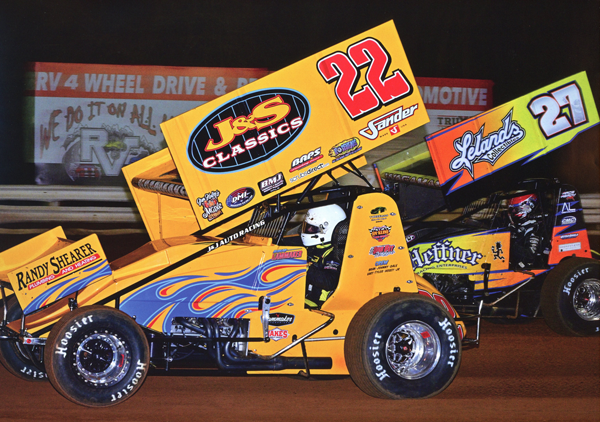
|
Troy Wagaman #27 and Doug Haymaker on
the hammer last summer. Sprint Cars are looking pretty natty these
days, especially contrasted with Jan Opperman's Bogar Special. From
Rife Racing Collectible's
EASTERN SPRINT 2026 CALENDAR
(WRT Speedwerx Photo) |
|
m |
|
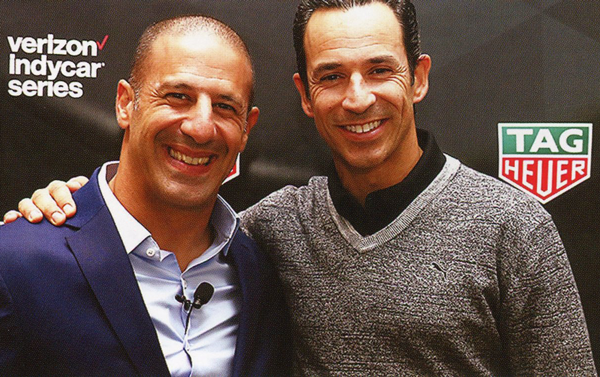 |
"Tony Kanaan and Helio Castroneves began
competing against each other as teenagers in Brazil. Their careers
ran in parallel for more than thirty years." Quote and Photo from
CLASS OF ’99: Triumph and Tragedy in the 1999 CART Indy Car Series,
by John Oreovicz (Chris Owens Photo)
|
|
M |
|
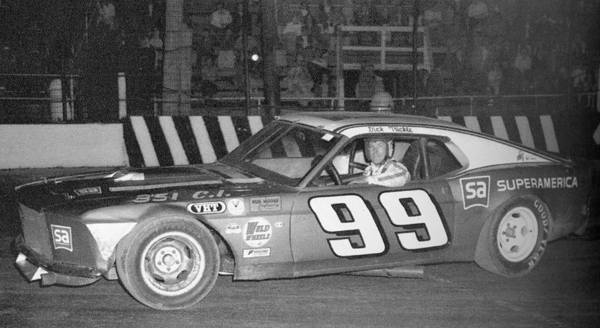 |
"Midwestern racing legend Dick
Trickle made an unexpected visit to Chicago's Raceway Park on May
19, 1974. Winner of over 1,000 feature races during his short track
career, Trickle finished third behind Bud Koehler and Mark
Hernandez, better known as "Speedy Gonzales." Trickle was crowned
Rookie of the Year in NASCAR's Winston Cup competition." (Quote and
Photo from BLUE ISLAND RACEWAY PARK, by Stan Kalwasinski)
|
|
m |
|
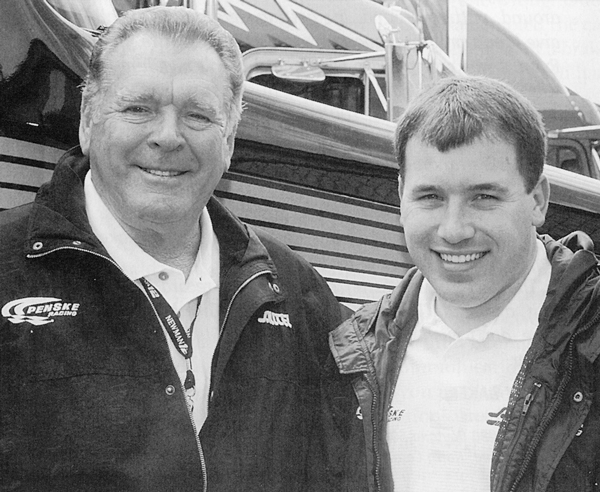 |
Ryan Newman’s mentor, Don Miller, asked
Buddy Baker to keep an eye on rookie Ryan at a test at Gateway
Raceway.
Baker: “I was pretty sharp with him. When he came in
[from the track], I just walked over and said ‘Boy, are you giving
us 100 percent?’
“He said, ‘Well no.’
“I asked him
why, and he said ‘I didn’t want to mess up.’
“I said, My
grandmother wouldn’t mess up the way you’re running.”
With
that he jerked that thing into low gear, went back out, and drove
that thing down to where you see Elvis. I told the guys, “My God. I
might have killed him. But if he makes that corner, I think we’ve
got a driver.”
The next lap was faster than the track record.
Then did I call Don and said, ‘This guy’s the real deal. Give him a
little bit of time, don’t push him too quick, and you’ll have a
franchise driver.”
From MILLER’S TIME: A Lifetime at
Speed, by Don Miller with Jim Donnelly. (Steven Rose Photo) |
|
M |
|
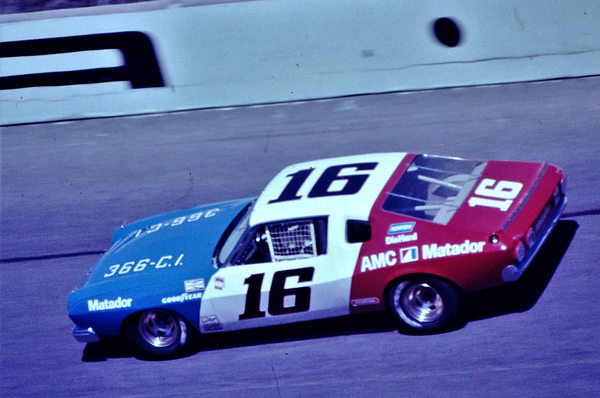 |
|
Mike Feltenberger sends in this image of
Penske Racing's 1975 Daytona 500 entry, an American Motors Matador
driven by Bobby Allison. Its outcome was pleasing, as Allison,
starting third, soldiered home to runner-up laurels, earning
$26,700. Just in case you wondered, Mike points out that, curiously,
there were no single digit cars in the starting field. |
|
M |
|
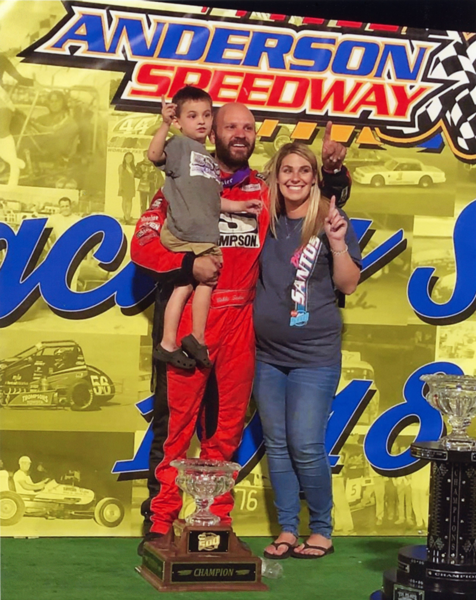 |
That's open-wheel's master man, Bobby
Santos III, after sweeping the 2020 Little 500. He sure likes to go
fast. A few years earlier, he set a sizzling new all-time,
closed-course, Midget lap record of 147 mph on Iowa Speedway.
Afterwards we talked:
“How did it feel, Bobby?”
“I thought I
had a good lap.”
“Oh, come on! It was incredibly fast! How did it
feel?’
“It did get a little breezy.”
(New England Racing
Museum Collection) |
|
m |
|
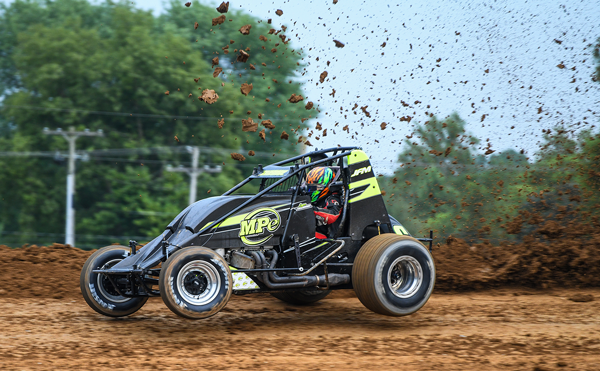 |
|
John DaDalt sends us this cool photo and
caption: "Logan Calderwood smashing the cushion at Lincoln Park
Speedway on July 25 during Indiana Sprint Week." (John DaDalt Photo) |
|
m |
|
|
|
|